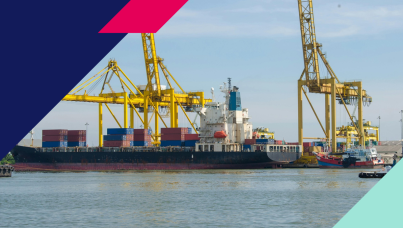Majority of Canadians Believe Canada will be Better Off in 2017, the 150th Anniversary of Confederation, Than It is Today (62%) Or Was in 1967 (61%)
While a majority in all regions believe that Canada will be better off in its 150th anniversary of the formation of the Dominion of Canada, residents of Alberta (71%) are most likely to `agree' that Canada will be better off in 2017 than now, followed by those from Saskatchewan and Manitoba (69%), Atlantic Canada (69%), British Columbia (68%), Ontario (61%), and Quebec (51%). Quebecers (49%) are most likely to `disagree' that Canada will be better off in 2017 than 2012, followed by Ontarians (39%), British Columbians (32%), Atlantic Canadians (31%), residents of Saskatchewan and Manitoba (31%), and Albertans (29%).
Not only do Canadians think that the 150th anniversary of Confederation will result in a better Canada than the one in 2012, but most believe that Canada will be a stronger country than it was in 1967, the 100th anniversary of Confederation. A majority (61%) of Canadians `agree' (14% strongly/47% somewhat) that `Canada will be a stronger country in 2017 (its 150th anniversary) than it was in 1967 (its 100th anniversary). Two in five (39%), however, `disagree' (9% strongly/30% somewhat) that Canada will be stronger in 2017 than 1967.
Residents of Saskatchewan and Manitoba (71%) and Alberta (70%) most `agree' that Canada will be stronger in its 150th anniversary of Confederation year compared to its 100th anniversary year, followed by Ontarians (62%), Atlantic Canadians (61%), British Columbians (60%), and Quebecers (52%). Quebecers (48%), on the other hand, are most likely to `disagree' that Canada will be stronger in 2017 than 1967, followed by British Columbians (40%), Atlantic Canadians (39%), Ontarians (38%), Albertans (30%), and residents of Saskatchewan and Manitoba (29%).
When it comes to planning and arranging any festivities for the 150th anniversary of Confederation, most Canadians believe it should be planned by ordinary citizens, not the government. Three in five (62%) Canadians `agree' (17% strongly/45% somewhat) that `the Canadian public - citizens, business leaders, and private groups - should plan Canada's 150th anniversary celebrations, not the federal government'. Two in five (38%), however, `disagree' (7% strongly/31% somewhat) that Canada's 150th anniversary should be planned by the public, not the government.
Those from Saskatchewan and Manitoba (68%) most `agree' that the Canadian public, not the government, should plan Canada's 150th anniversary festivities, followed closely by British Columbians (65%), Albertans (64%), Atlantic Canadians (64%), Quebecers (61%), and Ontarians (60%). Ontarians (40%), however, are most likely to `disagree' that Canada's 150th anniversary should be planned by the Canadian public, not the government. Trailing Ontario in this disagreement is Quebec (39%), Albertans (36%), Atlantic Canadian (36%), British Columbians (35%), and residents of Manitoba and Saskatchewan (32%).
These are some of the findings of an Ipsos Reid poll conducted between December 7th to 12th, 2012, on behalf of Postmedia News and Global Television. For this survey, a sample of 1,021 Canadians from Ipsos' Canadian online panel was interviewed online. Weighting was then employed to balance demographics to ensure that the sample's composition reflects that of the adult population according to Census data and to provide results intended to approximate the sample universe. The precision of Ipsos online polls is measured using a credibility interval. In this case the poll is accurate to +/- 3.5 percentage points of the entire Canadian adult population. All sample surveys and polls may be subject to other sources of error, including, but not limited to coverage error, and measurement error.
For more information on this news release, please contact:
Darrell Bricker, PhD
CEO
Ipsos Public Affairs
416.324.2001
[email protected]
About Ipsos Reid
Ipsos Reid is Canada's market intelligence leader, the country's leading provider of public opinion research, and research partner for loyalty and forecasting and modelling insights. With operations in eight cities, Ipsos Reid employs more than 600 research professionals and support staff in Canada. The company has the biggest network of telephone call centres in the country, as well as the largest pre-recruited household and online panels. Ipsos Reid's marketing research and public affairs practices offer the premier suite of research vehicles in Canada, all of which provide clients with actionable and relevant information. Staffed with seasoned research consultants with extensive industry-specific backgrounds, Ipsos Reid offers syndicated information or custom solutions across key sectors of the Canadian economy, including consumer packaged goods, financial services, automotive, retail, and technology & telecommunications. Ipsos Reid is an Ipsos company, a leading global survey-based market research group.
To learn more, please visit www.ipsos.ca.
About Ipsos
Ipsos is an independent market research company controlled and managed by research professionals. Founded in France in 1975, Ipsos has grown into a worldwide research group with a strong presence in all key markets. In October 2011 Ipsos completed the acquisition of Synovate. The combination forms the world's third largest market research company.
With offices in 84 countries, Ipsos delivers insightful expertise across six research specializations: advertising, customer loyalty, marketing, media, public affairs research, and survey management.
Ipsos researchers assess market potential and interpret market trends. They develop and build brands. They help clients build long-term relationships with their customers. They test advertising and study audience responses to various media and they measure public opinion around the globe.
Ipsos has been listed on the Paris Stock Exchange since 1999 and generated global revenues of e1,363 billion (1.897 billion USD) in 2011.
Visit www.ipsos-na.com to learn more about Ipsos' offerings and capabilities.



